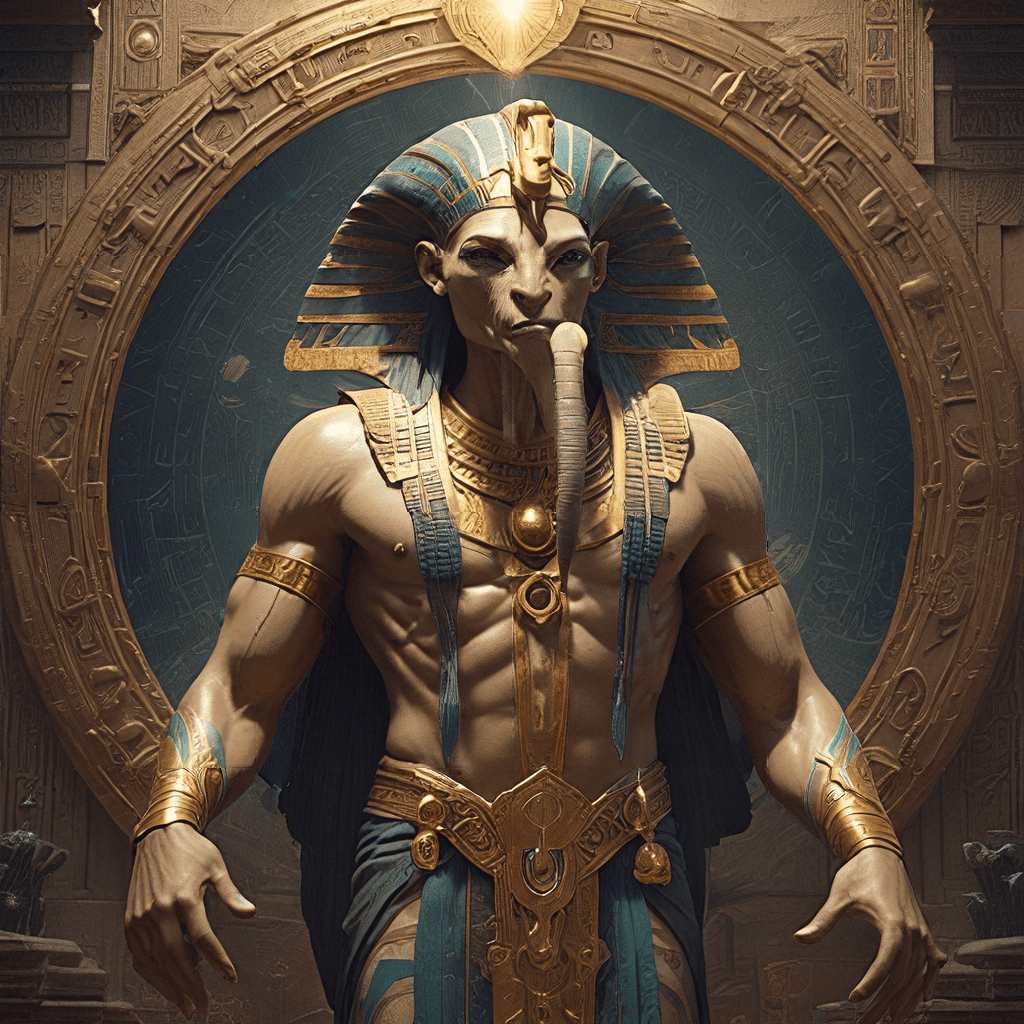Thoth: The God of Wisdom and the Afterlife
Thoth, a prominent deity in ancient Egyptian mythology, was revered as the god of wisdom, learning, magic, writing, and the moon. Known for his intelligence and vast knowledge, Thoth played a crucial role in both earthly and afterlife affairs. His influence is deeply ingrained in Egyptian culture, impacting their understanding of the cosmos, the written word, and the afterlife.
1. Origins and Evolution of Thoth
Thoth’s origins can be traced back to the predynastic period of ancient Egypt. Initially, he was a local god of Hermopolis, a city in Upper Egypt, and was associated with the moon and its phases. Over time, Thoth’s importance grew, and he became a prominent figure in the Egyptian pantheon. As the god of writing and knowledge, he symbolized the power of language and the ability to record and transmit information. His role in the afterlife further solidified his position as a powerful and revered deity. The ibis bird was his sacred animal, and he was often depicted as a man with the head of an ibis.
2. Thoth’s Roles and Attributes
Thoth’s multifaceted nature is reflected in his various roles and attributes. Besides being the god of wisdom, magic, writing, and the moon, Thoth was also the scribe of the gods, the keeper of time and the calendar, the inventor of the alphabet, and the patron of scribes and scholars. He was often depicted with a feather, symbolizing truth and justice, and a palette, representing the tools of writing and creation.
3. Thoth as the God of Knowledge and Writing
Thoth was credited with creating the written language, a pivotal development in Egyptian civilization. He taught the art of writing to humans, allowing them to record their history, beliefs, and wisdom. As the god of knowledge, Thoth was associated with libraries, schools, and the accumulation of knowledge. He was also the patron saint of scribes, who played a vital role in the administration and record-keeping of the ancient Egyptian society.
4. Thoth as the Keeper of Time and the Calendar
Thoth’s connection to the moon and its phases made him the keeper of time. The Egyptians believed that the moon’s cycles influenced the seasons and the natural world. Thoth was responsible for maintaining order in the cosmos by managing the cyclical nature of time. He also devised the Egyptian calendar, a system of 365 days, which was based on the movement of the sun.
5. Thoth in the Afterlife
In the Egyptian afterlife, Thoth played a critical role in the judgment of the dead. During the Weighing of the Heart ceremony, a ceremony where the deceased’s heart was weighed against the feather of truth, Thoth acted as the scribe, recording the outcome. The deceased’s fate was decided based on the weight of their heart, and Thoth’s record ensured that the judgment was fair. He was also believed to guide the souls of the deceased to the afterlife and to assist them in navigating the underworld.
6. Thoth’s Relationship with Other Gods
Thoth had strong relationships with several other Egyptian gods. He was a close advisor to Ra, the sun god and was believed to have helped Ra create the world. Thoth was also associated with Maat, the goddess of truth and justice, as he represented the principles of order, harmony, and balance in the universe. His influence was far-reaching, extending beyond his primary domain of knowledge and writing.
7. Thoth in Egyptian Mythology and Literature
Thoth appears in many Egyptian myths and stories. One famous story tells of how Thoth tricked the moon god Khonsu into giving him a portion of his light, which Thoth then used to create the stars. Another story describes how Thoth helped Ra defeat the serpent Apophis, who threatened to destroy the world. Thoth’s wisdom and magical abilities made him a popular figure in Egyptian literature, and his deeds were often recounted in myths, hymns, and tales.
8. Thoth in Art and Architecture
Thoth’s prominence in Egyptian culture is reflected in its art and architecture. He was often depicted in paintings, sculptures, and hieroglyphics. His image, usually with the head of an ibis and the feather of truth, is found on temple walls, tombs, and amulets. The city of Hermopolis, Thoth’s primary place of worship, was adorned with numerous monuments and temples dedicated to him.
9. Thoth’s Influence in Modern Culture
Though ancient Egypt’s legacy is far behind us, Thoth’s enduring influence is still felt today. He is a popular figure in modern mythology and occultism, particularly in the Hermetic tradition. His association with knowledge, magic, and the afterlife continues to inspire and fascinate people across cultures. The tarot card “The Magician” is often associated with Thoth, symbolizing his power over knowledge and creation.
10. Conclusion: The Enduring Legacy of Thoth
Thoth, the god of wisdom and the afterlife, embodies the ancient Egyptians’ reverence for knowledge, writing, and the mysteries of the universe. His multifaceted roles and attributes highlight the importance of intellect, creativity, and order in their worldview. Though Thoth’s worship has faded with time, his enduring legacy continues to inspire and influence our understanding of the world around us.




